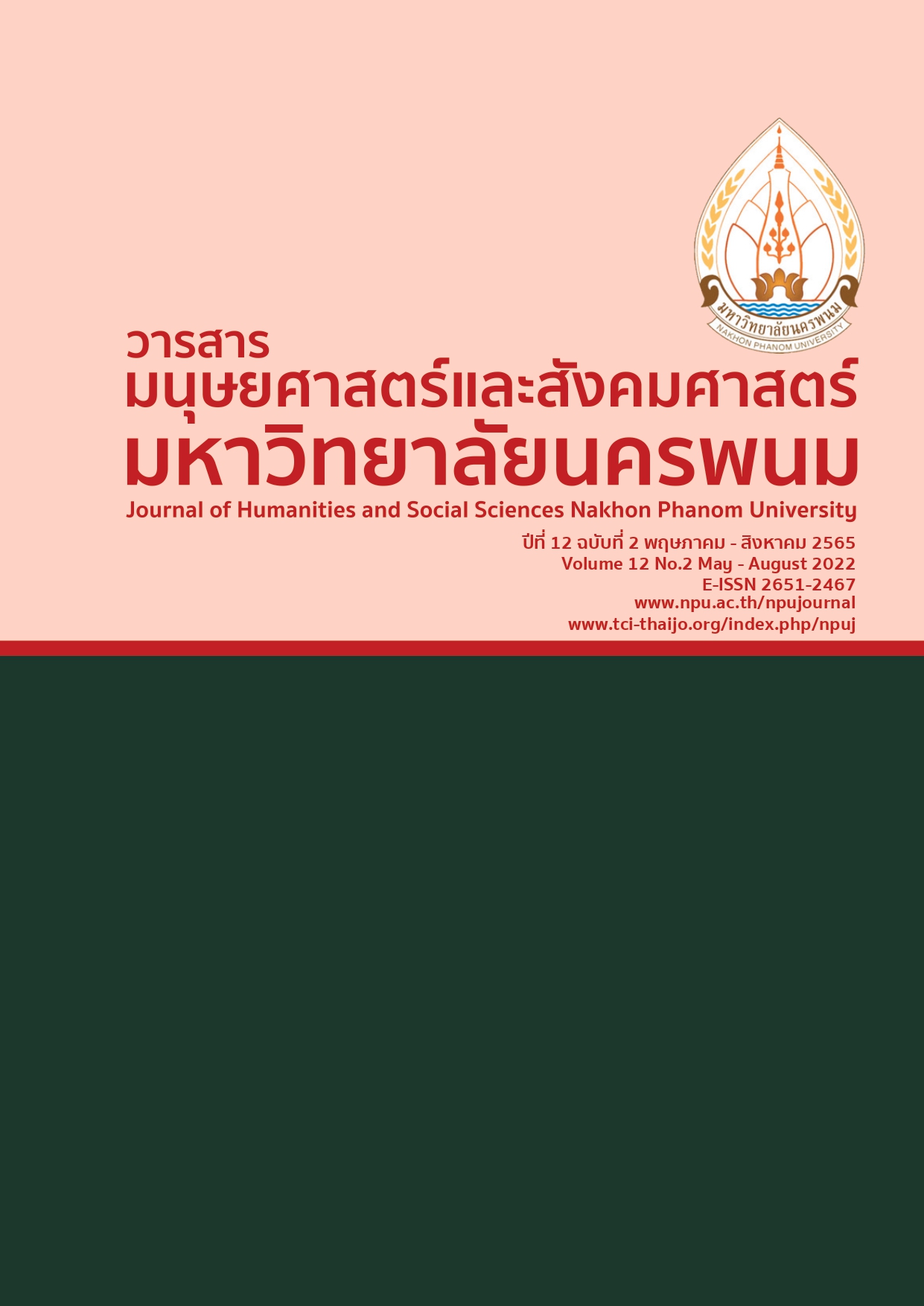The Use of of Social Media of Millennials on Politician Personality and Digital Political Participation
Main Article Content
Abstract
การวิจัยครั้งนี้มีวัตถุประสงค์เพื่อศึกษาลักษณะและพฤติกรรมการใช้สื่อสังคมของกลุ่มคน Millennials และผลของการใช้สื่อสังคมของกลุ่มคน Millennials ที่มีต่อบุคลิกภาพนักการเมืองและการมีส่วนร่วมทางการเมืองแบบดิจิทัล กับเสนอแนวทางการทำให้เกิดการมีส่วนร่วมทางการเมืองของกลุ่มคน Millennials โดยใช้แบบสอบถามที่ได้จากการทบทวนวรรณกรรมจำนวน 70 ข้อ แล้วนำไปทดสอบคุณภาพของแบบสอบถามก่อนนำไปทดลองใช้งานเพื่อให้ได้เครื่องมือวิจัยที่สมบูรณ์ และนำไปเก็บข้อมูลจากกลุ่มตัวอย่างผู้มีสิทธิ์ออกเสียงเลือกตั้งครั้งแรกในปี พ.ศ.2562 ทั่วประเทศ จำนวน 1,138 คน สถิติที่ใช้ ได้แก่ ค่าเฉลี่ย ส่วนเบี่ยงเบนมาตรฐาน ความแปรปรวน การทดสอบความแตกต่างของค่าเฉลี่ย t-test, F-test, MANOVA การวิเคราะห์ความสัมพันธ์แบบ Pearson Chi-Square, Pearson Coefficient และ Multiple Regression Analysis ผลการวิจัยพบว่า 1) ผู้ตอบแบบสอบถามส่วนใหญ่เป็นกลุ่มคน Millennials 55.1% ใช้สื่อสังคมประเภทเฟซบุ๊ก ทุกวัน ค่าเฉลี่ยการมีส่วนร่วมทางการเมืองแบบดิจิทัลอยู่ในระดับน้อยที่ 1.94 ทั้งภาพรวมและองค์ประกอบหรือตัวแปร ค่าเฉลี่ยของบุคลิกภาพนักการเมือง อยู่ในระดับปานกลางที่ 3.10 ทั้งในภาพรวมและองค์ประกอบหรือตัวแปร 2) การมีส่วนร่วมทางการเมืองแบบดิจิทัลมีความสัมพันธ์น้อยกับบุคลิกภาพนักการเมืองอย่างมีนัยสำคัญทางสถิติที่ระดับ 0.1 (r= .31) และ 3) แนวทางสำหรับการพัฒนาการมีส่วนร่วมทางการเมืองของกลุ่มคนรุ่น Y ประกอบด้วยบุคลิกภาพนักการเมืองด้านทักษะการเมือง การมีอารมณ์มั่นคง การแสดงความถูกต้อง ลักษณะสนใจภายนอกและการเปิดรับซึ่งมีอิทธิพลอย่างมีนัยสำคัญทางสถิติต่อการมีส่วนร่วมทางการเมืองแบบดิจิทัล และมีความสัมพันธ์กับการใช้สื่อสังคมของกลุ่มตัวอย่างส่วนใหญ่ แต่ลักษณะสำคัญของนักการเมืองที่น่าสนใจคือ การแสดงความถูกต้องของนักการเมืองมีผลมากกว่าองค์ประกอบอื่น
Article Details

This work is licensed under a Creative Commons Attribution-NonCommercial-NoDerivatives 4.0 International License.
References
รายวัน. วันที่ 3 มิถุนายน 2563.
ฐากร ตัณฑสิทธิ์ และชุติพงศ์ กี่สุขพันธ์ (2563) “โลกยุคใหม่ อิทธิพล OTT ชี้นำให้ใครเป็น
นายกรัฐมนตรีได้”หนังสือพิมพ์มติชนรายวัน. วันที่ 6 พฤษภาคม 2563.
Alsop, R., Nicholson, P. & Miller, J. (2009). Gen Y in the workforce commentary.
Harvard Business review, 87(2), 43-49.
Anderson, H.J., Bauer, J.E., Griffith, J.A. & Buckley, M.R. (2017). What works for you may
not work for (Gen)me: limitations of present leadership theories for the new generation. The leadership quarterly (1048-9843), 28(1), 245.
Balda, J.B. & Mora, F. (2011). Adapting leadership theory and practice for the
networked, millennial generation. Journal of leadership studies, 5(3), 13-24.
Benkler, A. (2006). The wealth of networks: How social production transforms markets and freedom. Yale University Press.
Berthon, P.R., Plangger, K. & Shapiro, D. (2012) Business Horizon, 55(3), 261-271
Brown, J.D. (1999). Standard error V.S. standard error of measurement, Shiken: JALT.
Testing & Evaluation Sig Newsletter, 3(1), 20-25.
Castells, M. (2010). The new public sphere: Global civil society, Communication
networks and global governance. In: D. Thussu. ed. International communication: A Reader. London: Routledge.
Cahill, T.F. &Sedrak, M. (2012). Leading a Multi-generational workforce: strategies for
attracting and retaining millennium. Frontiers of health service management, 29(1), 3-15.
Howe, N. & Strauss, W. (1998). Fourth turning: An American prophecy-what The
cycles of history to use about America next rendezvous with destiny. New York: Broadway books.
Kaifi, B.A., Nafei, W.A., Khanfar, N.M. &Kaifi, M.M. (2012). A Multi-generational workforce:
managing and understanding millennials. International Journal of business and management, 7(24), 88-93.
Kelty, C., Panofsky, A., Currie, M., Crooks, R., Erickson, S., Garcia, P., Wartenbe, M. & Wood, S. (2015). Seven dimensions of contemporary participation detangled. Journal of the Association for Information Science and Technology, 66(3), 474-488.
KovitWongsuwan (2020) “President Trump With fun stuff For Twitter”Matichon. 3 June 2020.
ThakornTranthasit and ChutipongKeesukpran(2020) “The modern world influences OTT to guide who to bePrime Minister”Matichon. 6 May 2020.


